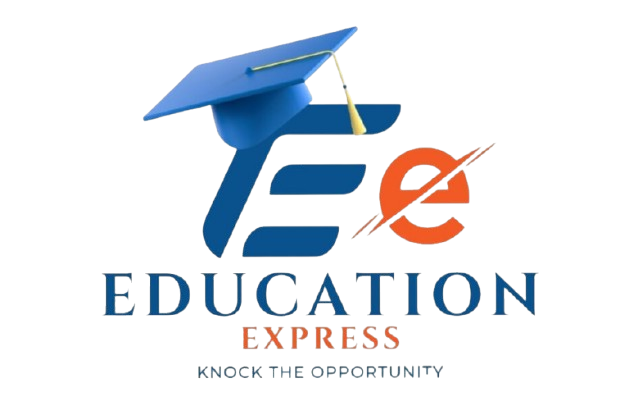Know Yourself: Start With Self-Reflection
Choosing the right education path is one of the most important decisions you’ll make in your life. Whether you’re a high school student trying to figure out your next steps, a college student unsure of your major, or someone considering a career change, making an informed decision about your education is crucial for your future success. But with so many options out there, how do you know which path is right for you?
In this guide, we’ll break down the process step-by-step, offering advice and practical tips to help you choose a path that aligns with your passions, skills, and long-term goals. Let’s get started!

Before jumping into academic programs or career choices, it’s essential to reflect on who you are, what you enjoy, and where you excel. Spend some time answering these questions:
-
What subjects or activities make you feel most engaged? Do you love problem-solving, working with people, or being creative?
-
What are your strengths and weaknesses? Are you analytical, artistic, social, or detail-oriented?
-
What are your long-term goals? Do you want a career with high earning potential, job stability, or the opportunity to make an impact on society?
You may find it helpful to take personality or career assessment tests (like the Myers-Briggs Type Indicator or StrengthsFinder) to better understand your preferences and natural tendencies.
New Delhi

Explore Your Interests: Research Careers & Fieldsre
Successful people do not see failures as failures. They see them as important learning lessons. Lessons that are capable of giving them insights to prevent such mistakes from happening again. By adopting this mindset of turning each failure into a learning lesson or opportunity.
- Diversity investigation for royal been.
- Create a structure where participants will add their information.
- Efforts without a focus.
- Many contradicting opinions a vision document.
- A deliverable for workshop participants.
Consider Education Options: College, Vocational Training, or Online Learning?
Once you’ve narrowed down potential career paths, it’s time to consider the various educational options available to you.
- Traditional College Degree: Some careers require a four-year degree or even a graduate degree. If you’re aiming for fields like engineering, law, medicine, or education, a formal degree will likely be necessary.
- Pros: Comprehensive education, networking opportunities, social development.
- Cons: Time and cost commitment.
- Vocational or Trade Schools: If you’re interested in hands-on work like plumbing, carpentry, or cosmetology, a trade or vocational school might be the best route. These programs are typically shorter and more affordable than traditional degree programs.
- Pros: Direct path to a specific career, shorter duration, lower cost.
- Cons: May have less flexibility or variety in career options.
- Online Learning & Certifications: With the rise of online learning platforms like Coursera, edX, and LinkedIn Learning, you can gain certifications and skills in fields like data science, digital marketing, or graphic design without committing to a full degree.
- Pros: Flexibility, lower cost, specialized knowledge.
- Cons: Less social interaction, less recognized in some fields compared to traditional degrees.
- Apprenticeships & Internships: These hands-on learning opportunities allow you to gain work experience while learning on the job. They are especially valuable in fields like tech, arts, or trades.
Match Education to Your Lifestyle & Goals
The education path you choose should not only align with your career goals but also your lifestyle, personal values, and financial situation. Some factors to consider:
- Time Commitment: How much time are you willing or able to invest in your education? If you’re planning to go back to school after working for several years, part-time or evening programs might be more suitable. Alternatively, you might opt for accelerated programs to quickly transition into a new career.
- Financial Investment: Think about the cost of education and your potential return on investment. What’s the cost of the program, and will you be able to repay student loans after graduation? Consider the earning potential in your chosen field to ensure it aligns with your financial goals.
- Flexibility & Location: If you have family commitments or other responsibilities, you might prefer online programs or flexible schedules that allow you to learn at your own pace. On the other hand, if you want the traditional college experience, attending a campus-based program could be more fulfilling.
Set SMART Goals: Create a Clear Plan
Once you’ve decided on a path, set SMART goals to stay on track. SMART goals are:
- Specific: Clearly define what you want to achieve.
- Measurable: Determine how you will track your progress.
- Achievable: Set realistic goals based on your current situation.
- Relevant: Ensure that your goals align with your long-term objectives.
- Time-Bound: Set deadlines to keep yourself accountable.
For example, if you’ve decided to pursue a degree in MBBS, a SMART goal might look like: “I will complete my application to three universities by the end of this month and choose a program by the start of next semester.”
Seek Guidance: Speak With Mentors and Advisors
Choosing the right education path doesn’t have to be a solo journey. Seeking guidance from people who have walked similar paths can provide invaluable support. Consider speaking to:
- Teachers and Academic Advisors: They can help you understand your strengths, suggest programs, and guide you through the application process.
- Career Counselors: Many high schools and universities have career counselors who can help you assess your skills, suggest possible careers, and connect you with internships or job opportunities.
- Family & Friends: While they may not have all the answers, seeking advice from trusted people can help you gain different perspectives.
Be Flexible and Open to Change
Finally, remember that your education path may not be linear. As you grow and learn more about yourself, your interests may change. Be open to adjusting your course as new opportunities and passions arise.
Many people change careers multiple times throughout their lives, and that’s perfectly fine. The important thing is to keep learning, stay curious, and adapt to the ever-changing world around you.
Conclusion:
Choosing the right education path is not always easy, but with careful reflection, research, and planning, you can set yourself up for success. Whether you’re just starting your journey or contemplating a career change, remember that the path you choose today doesn’t have to be permanent. Stay open-minded, keep exploring, and embrace the learning process. Your future is full of possibilities, and the best is yet to come!


